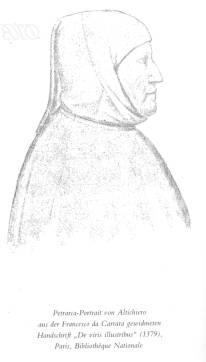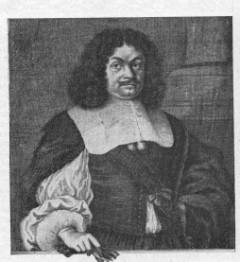Petrarchism

The
influence of the Italian poet Francesco Petrarca is evident in baroque
German love poetry – this is why we take this little trip to Italy:
1. European importance
The poetry written under the influence of Petrarch
(1304-1374) forms the second set of a common European poetry after the
songs of the troubadours of the Middle Ages. Baroque love poetry all over
Europe, particularly the then fashionable sonnet, was greatly inspired
by the famous Italian master of the 14th century.
2. Petrarch`s life
Petrarch was born in 1304 as the second son of a
Florentine lawyer. At an early age, he was instructed in Grammar and Rhetoric.
About 1316 he started to study law and began to take interest in the love
poetry of the court. He travelled a lot (in Germany he visited Cologne)
and even worked as a diplomat for the Pope. 1327, in Avignon, Petrarch
met Laura, the great, unhappy love of his life. In 1348, she died from
the plague. 26 years later, on July 18th, 1374, Petrarch died
of a fever.
3. Petrarch`s "Canzoniere"
His most famous work, a collection called "Canzoniere", consists of 366 poems, thereof 317 sonnets. Between 1341 and his death in 1374, Petrarch wrote as many as 9 versions of it.
This comprehensive collection is basically about the meeting of the speaker of the poems with his beloved Laura a love which is not returned and which is characterised by yearning and desperation up to the early death of his love.
Laura`s beauty is described in extreme metaphors so
much so that she becomes almost unreal. The speaker finds himself in an
almost unbearable tension: although deadly wounded by his love, it is this
love which keeps him alive.
In Germany, Petrarch`s influence set in three centuries
later – which is very late if compared to the situation in other countries.
Many German 17th century poets (Gryphius, Fleming, Hoffmannswaldau,
Sibylla Schwarz and others) then made use of the ideas and forms of their
Italian idol.
 Andreas
Gryphius Andreas
Gryphius |
This consisted basically in describing something
or somebody with the help of exorbitant mythological allusions as well
as antithetical and hyberbolical imagery - the result being that at the
end of the sonnet an abstract concept would appear.
Markus Landshut